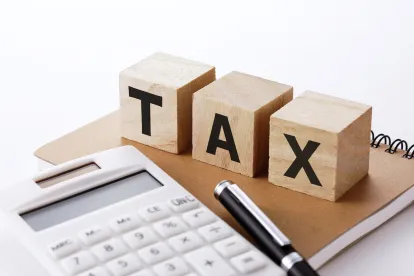The U.S. Internal Revenue Service (IRS) quietly added two new questions and answers regarding virtual currency donations to its answers to Frequently Asked Questions on Virtual Currency Transactions (FAQs) on December 26, 2019. The two new answers address the responsibilities of charitable organizations when accepting donations of virtual currency, including cryptocurrency.
The original FAQs, issued on October 9, 2019 in conjunction with a concurrently issued Revenue Ruling (Rev. Rul. 2019-24, 2019-44 I.R.B. 1) (together with the FAQs, the “October Guidance”), re-confirmed the IRS’s position, announced in Notice 2014-21, 2014-16 I.R.B. 938, that virtual currency is “property” for U.S. federal income tax purposes and provided direction on how the rules generally applicable to property transactions apply in the context of virtual currency.
We discussed the October Guidance, which addressed the taxation of a wide scope of virtual currency transactions. The October Guidance was the first official guidance on the taxation of virtual currency transactions in more than five years and thus attracted significant attention. It specifically addressed the donor side of taxation related to virtual currency donations, and applied the general rules applicable to non-cash donations to donations of virtual currency. In addition, the October Guidance also provided information concerning the tax consequences of cryptocurrency “hard forks” as well as acceptable methods of determining tax basis for virtual currency transactions.
Donor Acknowledgment Responsibilities
In order for a donor to properly claim a tax deduction of $250 or more for a donation of virtual currency, the charitable organization must provide the donor with a contemporaneous written acknowledgment.
In order for a donor to properly claim a tax deduction of more than $5,000 for a donation of virtual currency, the charitable organization must sign the donor’s Form 8283, Noncash Charitable Contributions, if the donor presents the Form 8283 to the organization for signature. Form 8283 requires a qualified appraisal for donated property over $5,000. The organization’s signature represents acknowledgement of receipt of the virtual currency on the date specified and that the organization understands the information reporting requirements imposed on dispositions of the donated property; it does not represent the organization’s agreement with the appraised value of the property.
IRS Reporting Requirements
For IRS reporting purposes, a charitable organization should treat a donation of virtual currency as a non-cash contribution. The tax-exempt organization is responsible for reporting such a contribution on its Form 990 annual return (and the associated Schedule M, if applicable). In addition, the tax-exempt organization must file (and provide the original donor a copy of) Form 8282, Donee Information Return, if it sells, exchanges or otherwise disposes of any portion of the donated virtual currency within three years of the date it originally received it. This would include situations where the organization sells or exchanges the virtual currency for real currency.
Impact on Charitable Organizations
The acknowledgment by the IRS of the application of the tax rules generally applicable to donations of property to virtual currency donations could be viewed as a positive development for tax-exempt organizations, as it may open up potential new avenues for funding. However, the implied appraisal requirement for donors making larger donations to be able to appropriately claim the related tax deduction may discourage donations of significant amounts. Appraisals are not required for publicly traded securities, and the IRS could have taken the view that virtual currency is comparable to publicly traded securities for purposes of the appraisal requirements, but this new guidance shows that the IRS is taking a different view. Potential donors will likely find it expensive and difficult to find a “qualified appraiser,” which the IRS requires to have earned a recognized appraiser designation (which does not yet exist for virtual currency), or meet certain minimum educational requirements and have two or more years of experience valuing the type of property being appraised (which will be difficult to meet as virtual currency is so new), among other requirements. Whether this additional guidance will encourage donations of virtual currency to tax-exempt organizations remains to be seen.




 />i
/>i

